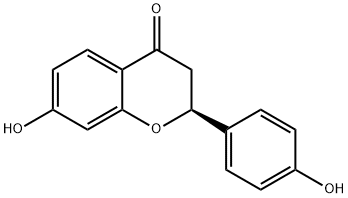| Description |
Liquiritigenin is an active estrogenic component in extracts of Glycyrrhizae radix. Glycyrrhizae radix (G. radix, licorice, liquorice) is frequently used for life-enhancing properties, for the treatment of injury or swelling, for detoxification in traditional Oriental medicine, as well as a food supplement in many of the countries in the world. Liquiritigenin is a selective estrogen receptor-β (ERβ) agonist. Liquiritigenin activates multiple ER regulatory elements and native target genes with ERβ but not ERα. The ERβ-selectivity of liquiritigenin is due to the selective recruitment of the coactivator steroid receptor coactivator-2 to target genes.
As the targeting ERβ is associated with anti-inflammatory effects, liquiritigenin exerts anti-inflammatory effects. Liquiritigenin is also reported to antihyperlipidemic, antiallergic and antihepatocellular carcinoma effects. |
| References |
[1] J. E. Mersereau, N. Levy, R. E. Staub, S. Baggett, T. Zogric, S. Chow, W. A. Ricke, M. Tagliaferri, I. Cohen, L. F. Bjeldanes (2008) Liquiritigenin is a plant-derived highly selective estrogen receptor β agonist, Molecular and Cellular Endocrinology, 283, 49-57
[2] Di Wang, Jiahui Lu, Yan Liu, Qingfan Meng, Jing Xie, Zhenzuo Wang,Lesheng Teng (2014) Liquiritigenin Induces Tumor Cell Death through Mitogen-Activated Protein Kinase- (MPAKs-) Mediated Pathway in Hepatocellular Carcinoma Cells, BioMed Research International, 2014, Article ID 965316 |

 China
China






